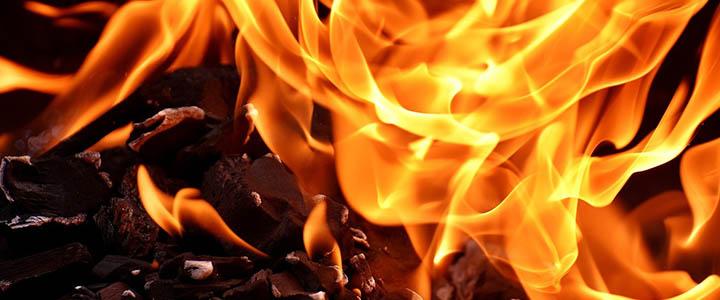
Be aware of air pollution from wood smoke and open burning
While we are deep in the throes of fall and watching winter approach, it’s a good time to ensure that residents are making an effort to reduce the air pollution they could potentially be generating at home.
One source would be open fires residents sometimes use to burn brush after their fall yard clean-ups. If you plan to burn brush, it can only be done under certain conditions. Branches must be five inches in diameter or less. Fires can only take place once a burn permit has been acquired from your local Fire Warden and the conditions listed on the permit are followed. Things that cannot be burned are construction or demolition debris, treated or painted wood, or trash. For a complete list of materials that cannot be burned and other restrictions, refer to Env-A 1000 Open Sources of Air Pollution or the NHDES website.
Each winter, NHDES receives several complaints about the smoke from open burning. It is up to you to do your part to keep the air pollution free in your neighborhood and throughout New Hampshire.
Aside from open fires outside, many residents are just now starting to use wood-burning appliances, such as stoves or boilers, to heat their homes. A properly installed, correctly used wood-burning appliance should generate very little smoke. If you regularly see or smell smoke, you may have a problem. The biggest health threat from smoke is from fine particles, also called fine particulate matter or PM2.5. These microscopic particles can get into your eyes and respiratory system, where they may cause burning eyes, runny nose, and illnesses, such as bronchitis. Fine particles can also make asthma symptoms worse and can trigger asthma attacks. Reduce smoke inside and outside your home using these steps. For more information, check out EPA's Burn Wise Health and Safety Awareness Toolkit.
If you are looking to buy a wood stove or wood-fired hydronic heater (commonly known as open wood boilers), make sure it is certified to the May 2020 EPA emission standards. EPA-certified units are high efficiency, cleaner burning devices. Using these unites will reduce pollution and can save you money. In addition, a law was passed in 2008 and amended in 2017 (RSA 125-R) that prohibits the sale and installation of uncertified outdoor wood boilers in New Hampshire. Existing non-certified units can remain in place but cannot be moved or reinstalled at another location.
Each winter, NHDES receives several complaints about the smoke from older wood stoves and from open burning. You can do your part to keep the air pollution-free in your neighborhood and throughout New Hampshire by following these laws and guidelines.
For more information, visit the EPA’s website at EPA Certified Wood Heater Database and EPA’s Open Burning webpages, as well as the NHDES website at Home Wood-Burning Appliances.




